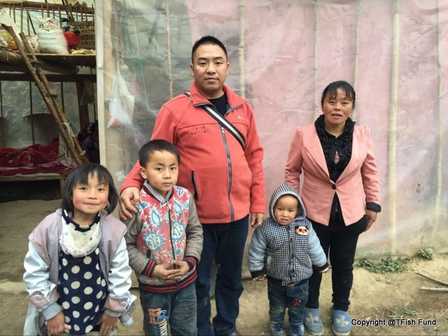 In front Weiwei’s oil-covered house In front Weiwei’s oil-covered house Compassion Nayong Public Welfare is based in Nayong, a poverty-stricken area in Guizhou Province. Taking the network as the platform, it carries out various public welfare activities to aid education. Weiwei is the first child we took in under Transparent Fish’s "Care for Children in Rural Areas" project. He is nine years old and is in second grade. His family’s difficulties are harder than that of other families we know. But fortunately, his mother is strong; the three siblings, although they have undergone many difficult living conditions, are still full of happiness and love under their mother's care. In March 2015, our volunteer Wang Yong visited the family for the first time. In his record, he wrote, "The difficult conditions are beyond what words can describe. They have no room to live in, and they now live in a simple tent with wooden sticks and bamboo structures with no tile. It is all covered with plastic. Where there is constant rain leaking through and no shade from the sun, this place cannot be considered home." After visiting them, we came to understand that Weiwei's father, who was suffering from jaundice and hepatitis, died in 2015, leaving his wife a sum of more than 30,000 RMB of debt and three young children. When the father was still alive, the family lived together with his uncles in several old wooden houses left by their ancestors. After his death, the old wooden house was occupied by the uncles who lived there; the orphans and the widow reluctantly moved out, with bamboo and plastic as a simple living shed now. They have been living in the shed for about a year and a half now. After the death of her husband, the mother alone took on the child-raising. Weiwei's little brother was only three years old. At the time, the mother could not leave the farm unattended so she would often be carrying a heavy basket of corn on her back, while holding the little brother. She struggled to transport the corn back home from the mountains, so 9-year-old Weiwei would help his mother on Saturdays and Sundays, carrying on his back baskets that were higher than his head. The child helped his mother grow vegetables, do housework, and take care of his younger brother and sister.
The pain that the mother endured was tremendous. However, to herself, she did not feel any suffering. Her heart ached for her children on rainy and cold days. Since the children suffered too because they didn’t have a house to live in, she gave their home’s only bed to the children. For them, she put up the biggest mosquito net she could find, hoping that it could shield them from the rain, as they are sleeping on the “bed” made up of mostly sticks. Usually, farmers want plenty of rain. However, because of how brittle and weak the shed is, the mother is fearful when it rains. Any casual touch may break the plastic holding the shed together. On days when it rains, the mother and her children have to take cover under bamboo sticks in order to avoid being hurt if the shed collapses. Few mothers and children have to endure this much fear for their lives. In October 2016, we once again returned to visit. In May 2016, the project had issued 10 chickens that have now grown into hens. All ten survived, and have begun to lay eggs. But now, there are only seven left; three were killed by Weiwei's mother as food for her children. In the beginning of the winter, the days were gradually getting colder. The children huddled around the stove, devouring their mother’s stew and spicy chicken. Their whole bodies began to warm up and sweat slightly. Their three little faces were pink because of the pepper and hot food. Looking at them, the mother felt instant gratification. She has no ability to build a warm nest for the them. It is only through this way that she is able to survive with her children until it becomes warm again, even if warm food like this is rare. Weiwei’s family usually eats vegetables that are cooked without oil. (The project issued rice and oil in May; By our return visit in October, they had all been consumed.) On the October return visit, Weiwei had gone into the second grade. Originally, the project’s goal was to get him 21 notebooks. He has already used 19 of them. He says that they are his most favorite things in his bookbag and hopes to get more next year. The teacher said that Weiwei has become more polite, cheerful, and lively. His attitude towards learning has improved with better results and more attention to personal hygiene. To help the children build a simple brick house, so that they no longer have to live in the wind and rain and in the cold winter when the wind breeze comes, became a volunteer and help make these children’s wishes come true. Original article written by Yan Song, translated by Nina Chen and edited by Yanyan Zhang and Carolyn D. Comments are closed.
|
TFISH FUND BLOGWe update news and reports directly from the field written by our NGO partners daily. Top PostsPHOTOS & VIDEOSIN THE NEWSCategories
All
Archives
August 2017
|

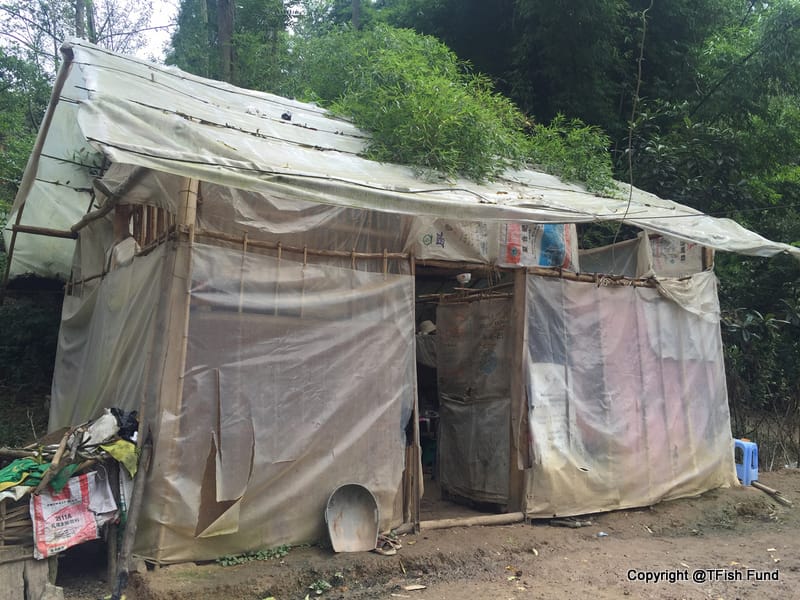
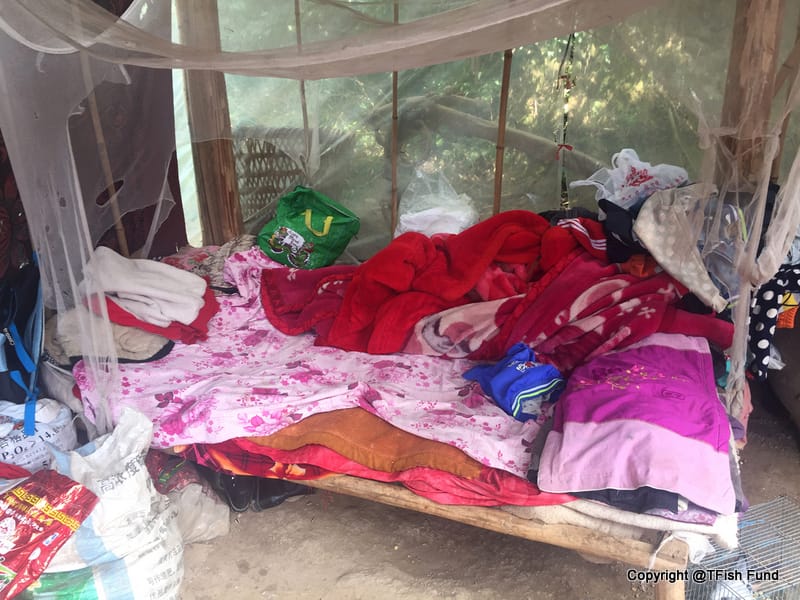
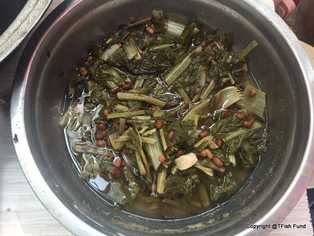
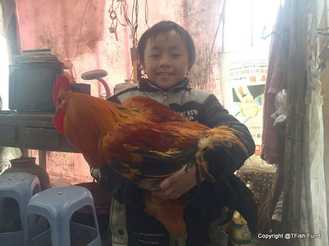

 RSS Feed
RSS Feed